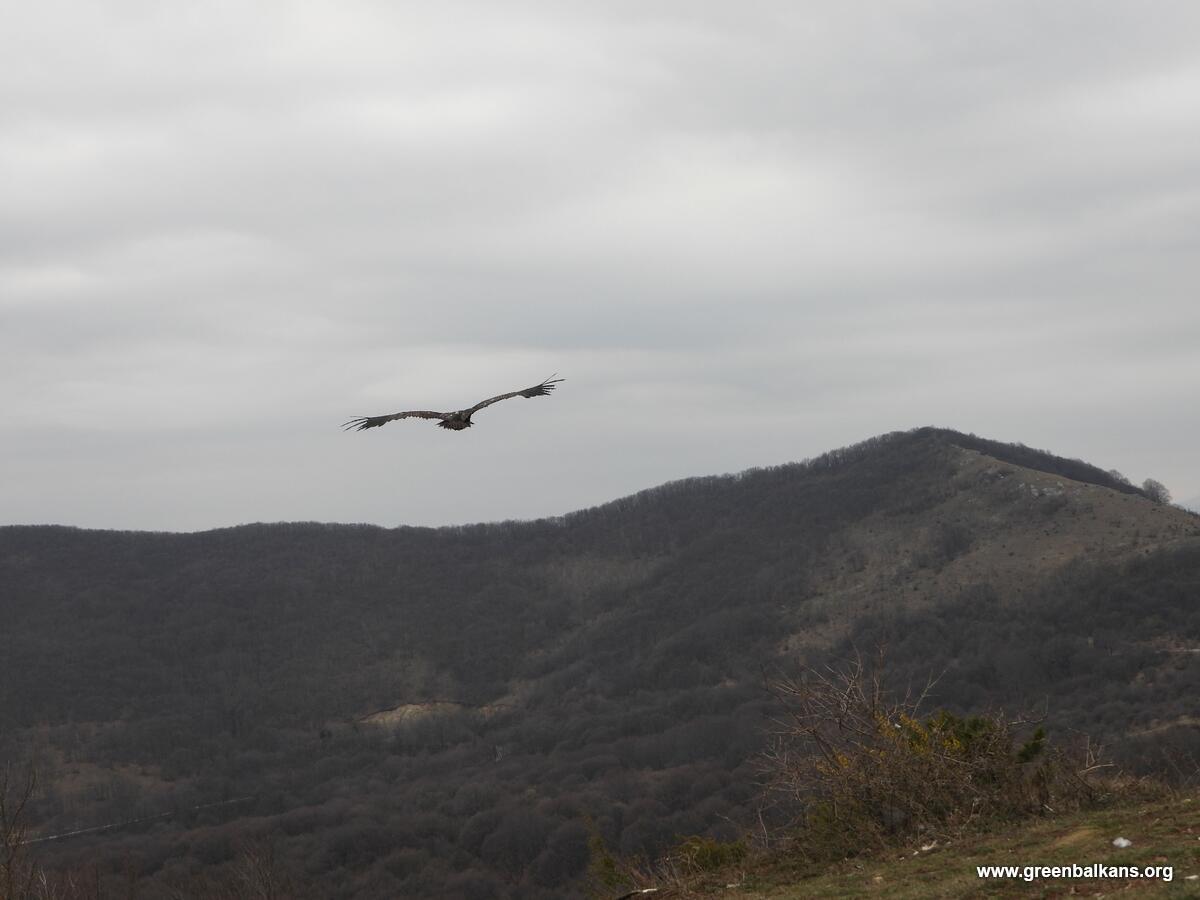
Several Cinereous Vultures originating from Spain entered the acclimatisation aviary in Kotel, Bulgaria, to get used to the surrounding environment before their release into the wild as part of the Vultures Back to LIFE reintroduction project.
Transfer to acclimatisation aviary
On 13 April, eight Cinereous Vultures were transferred from the Sinite kamani Nature Park aviary to the adaptation aviary in Kotel to be released within Vultures Back to LIFE. These birds come from wildlife rehabilitation centres in Spain and reached Bulgaria thanks to the joint efforts of Junta de Extremadura, AMUS and the Vulture Conservation Foundation (VCF). The project team fitted all birds with satellite transmitters to track them after their release into the wild, allowing us to monitor their behaviour and help them if necessary. Once released, they will help strengthen the Cinereous Vulture population in the area, which already hosts two nesting pairs for the first time in nearly 30 decades.
In addition to the Cinereous Vultures, 15 ravens and three Griffon Vultures were caught in the aviary while searching for food. Among the Griffon Vultures, two birds were already released in previous years while the other is a young wild bird who was marked and fitted with a transmitter within our BalkanDetox LIFE project. This project action aims to show the wanderings of the young birds in the Balkans and, on the other hand, to serve as an early warning system for poison baits. All wild birds were blood tested for biochemical and toxicological analyses by the veterinary team from the Green Balkans’ Wildlife and Rehabilitation Center.
Vultures Back to LIFE

Led by the wildlife conservation charity Green Balkans in collaboration with the Fund for Wild Flora and Fauna, Vulture Conservation Foundation, Junta de Extremadura and Euronatur, theVultures Back to LIFE project aims to reintroduce the Cinereous or Eurasian Black Vulture to Bulgaria. The team will transfer and release around 60 birds, some from captive-breeding, but mostly coming from Spanish wildlife rehabilitation centres into the wild in Bulgaria as well as creating supplementary feeding stations and improving populations of wild herbivores, improving the nesting conditions and creating artificial nest sites and tackling some of the major threats to vultures in the country such as insulating electricity pylons and illegal use of poison in nature.











